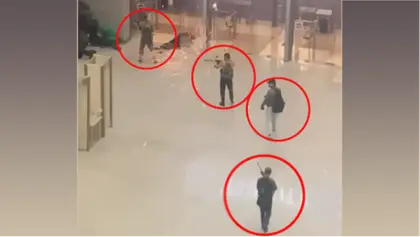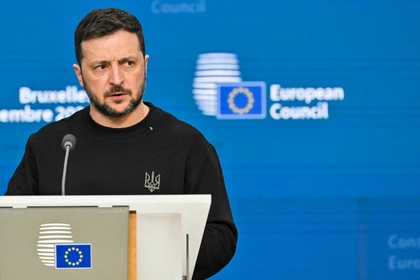US officials had shared highly specific information with Russia about the March 22 Crocus City terrorist attack two weeks earlier, which could have prevented it, according to a Washington Post report published Tuesday. The specificity of the information would belie repeated assertions by the Kremlin’s security advisors that the warning was too general to act upon.
Alexander Bortnikov, director of Russia’s Federal Security Service (FSB) said the information provided by US agencies was only of “a general nature.” On April 2, the head of Moscow’s Foreign Intelligence Service (SVR) maintained that the warnings had “not been specific.”
JOIN US ON TELEGRAM
Follow our coverage of the war on the @Kyivpost_official.
Three days before the attack, Russian President Vladimir Putin had dismissed warnings given earlier by the US Embassy in Moscow – that “extremists are planning to attack large gatherings of people in Moscow, including concerts” – as simple provocation to undermine him and his regime.
The report also contradicts earlier accusations by the New York Times that US intelligence sources had only provided partial information to the Kremlin because “Hostile relations… prevented the US from providing any information about the terrorist plan beyond what was necessary, for fear of that Russian authorities could learn about [US] intelligence sources or methods.”
The previously unreported claim that the US had identified the Crocus concert hall as a potential target raises more questions about the failure of Russia to put additional security measures in place.

Assassination of Kremlin’s Chemical General ‘Not a Good Idea’: Trump Envoy
As a result of the inadequate security, gunmen were able to carry out the worst terrorist attack on Russian soil for 20 years, killing 140, injuring more than 500, and destroying a popular, multi-million-dollar social venue built in 2009.
The Afghan based offshoot of the Islamic State, Islamic State-Khorasan, or ISIS-K, took credit for the attack, despite Russian attempts to implicate Ukraine in the atrocity. The US says ISIS-K “bears sole responsibility.”
The US maintains that it employs a “duty to warn policy” in relation to terrorism. Sources within US security agencies say that in January, Iran, another hostile country, was given intelligence of attacks being planned by Islamic State against Teheran “specific enough” that, if acted upon, could have helped to disrupt suicide bombings that killed at least 95 people in the city of Kerman.
Despite Russian officials saying the information from the US was too generic, it seems that they did take notice of some of it. One of the warnings was of a possible attack on a synagogue, which Russia’s FSB acted upon, announcing later that it had prevented an Islamic State attack on a Jewish temple in Moscow.
Dmitry Yegorov, a Russian YouTuber reported that staff at the Crocus City Hall had been briefed on the possibility of a terrorist attack not long after the March 7 public warning and said security staff had been instructed to carry out stricter checks at the entrances to the venue, including the use of trained dogs.
Asked to comment on the Washington Post article the Kremlin’s spokesperson, Dmitry Peskov used his normal “get out of jail free card” when asked difficult questions.
He said: “This is not our area of expertise, as such information exchange usually takes place through the channels of special services, that is information is passed from service to service.”
When asked about the fact that Russia is alleged to have used US intelligence to prevent the Moscow synagogue attack, Peskov said “Yes, this too [is not an area of Kremlin expertise].”
Understandably, both Russia and Iran may have been suspicious of the warnings provided by the US, an “enemy” state, suspecting the Americans of trying to sow discord, if not panic. However, if the reports made public by the Washington Post are accurate, then Moscow and Teheran will perhaps be more inclined to act on Washington’s “duty to warn policy” in the future.
You can also highlight the text and press Ctrl + Enter






